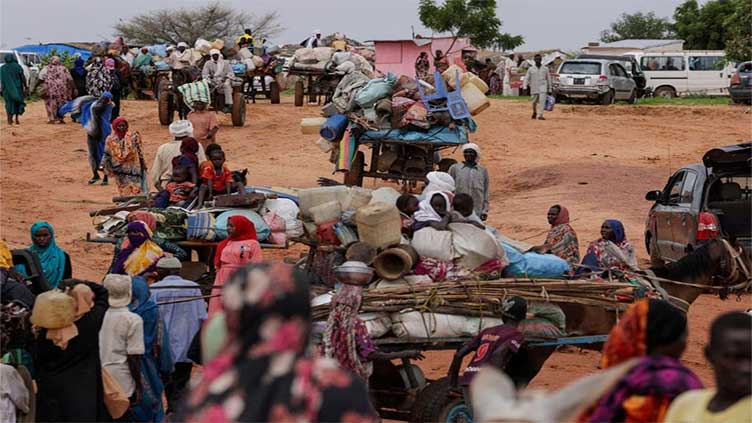UN raises alarm over child deaths in Sudan as health crisis deepens

World
UN raises alarm over child deaths in Sudan as health crisis deepens
GENEVA (Reuters) - More than 1,200 children have died of suspected measles and malnutrition in Sudan refugee camps, while many thousands more, including newborns, are at risk of death before year-end, United Nations (U.N.) agencies said on Tuesday.
More than five months into a conflict between Sudan's army and paramilitary group, Rapid Support Forces, the country's healthcare sector is on its knees due to direct attacks from the warring parties as well as shortages of staff and medicines, they said.
Dr. Allen Maina, chief of public health at the U.N. refugee agency (UNHCR), told a U.N. briefing in Geneva that since May more than 1,200 children from Ethiopia and South Sudan under the age of five had died in nine camps in White Nile state, home to one of Sudan's larger refugee populations.
"Unfortunately we fear numbers will continue rising because of strained resources," he added, adding that partners were struggling to vaccinate refugees, stoking the risk of epidemics.
Separately, some 3,100 suspected measles cases and 500 cholera cases have been reported across the country in the same period, along with outbreaks of dengue and malaria, he added.
A World Health Organisation (WHO) official told the same briefing that there have been 56 verified attacks so far on healthcare in Sudan since the war began and about 70% to 80% of hospitals in conflict states are now out of service.
The U.N. children's agency (UNICEF) said it worried that "many thousands of newborns" from among the 333,000 babies known to be due before the end of the year would die.
"They and their mothers need skilled delivery care. However in a country where millions are either trapped in war zones or displaced, and where there are grave shortages of medical supplies, such care is becoming less likely by the day," UNICEF spokesperson James Elder told the same briefing.
Every month, some 55,000 children require treatment for the worst form of malnutrition in Sudan, but fewer than one in 50 nutrition centres are functional in the capital Khartoum and one in 10 in West Darfur, he said.

